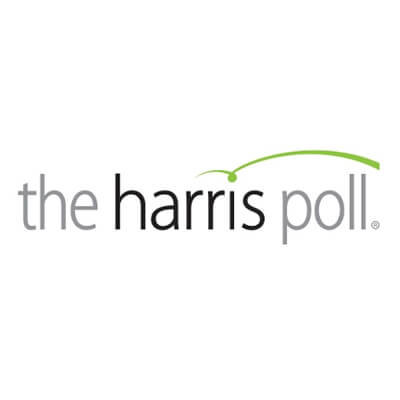
New Harris Poll, commissioned by Applied DNA Sciences, finds consumers will take strong action, boycotting companies, writing negative reviews and reporting to regulatory bodies
STONY BROOK N.Y., July 26, 2018 – An epidemic of inauthentic products may be consuming the mindset of today’s American consumers according to a recent Harris Poll: Roughly four in five Americans (79%) are concerned that products they purchase which they expect to be high quality could be made using low quality materials; more than 7 in 10 Americans (71%) are concerned that products they purchase have made false claims; and, nearly two thirds (65%) are concerned that products they purchase at full price could be knock-offs. These are the results of a survey of over 2,000 U.S. adults 18 and over, conducted online during June 2018 by The Harris Poll on behalf of Applied DNA Sciences, the leader in DNA-based authentication.
“This survey confirms that selling inauthentic products can be extremely detrimental to companies and their brands,” said James A. Hayward, Ph.D., chairman, president and CEO of Applied DNA Sciences. “In fact, nearly all Americans (94%) say that, if they found out a product they bought at full price was inauthentic, they would take action.”
Among those who would take action:
- 73% would stop buying from the company that sold it
- 67% would try to return the product
- 63% would tell friends/family about their negative experience
- 43% would formally defame the company that sold it by writing a negative review
- 43% would report the company to regulatory agencies
Behavioral impacts fluctuate based on age and gender, with women more likely than men and older adults more likely than younger adults to act.
- 77% of women vs. 69% of men, and 81% of adults aged 45+ vs aged 64% of adults aged 18-44 would stop buying from the company that sold the inauthentic product
- 72% of adults aged 45+ vs. 59% of adults aged 18-34 would try to return the product
- 66% of women vs. 60% of men and 69% of adults aged 45+ vs. 54% of adults aged 18-34 would tell friends/family about their negative experience
- 46% of women vs. 40% of men would write a negative review about the company that sold it
- 48% of adults aged 45+ vs. 36% of adults aged 18-44 would report the company to the authorities.
Additional findings of the survey suggest that Americans disapprove of unethical business practices and the use of forced labor when it comes to companies they purchase from, and they are not naïve to the fact that these practices are prevalent. Nearly three quarters of Americans are concerned that products they purchase could be made using forced labor or by companies that use bad business practices (74% and 73% respectively). Again, differences arise when it comes to gender and age:
- Women are more likely than men to voice concern about forced labor (80% vs 69%) and companies with bad business practices (79% vs 66%).
- Older adults, ages 65+, are more likely than their younger counterparts to feel forced labor may be rampant, 81% are concerned about this when it comes to the products they purchase compared to 73% of 18-to-64-year-olds.
The prevalence of inauthentic products is growing significantly. The 2018 Global Brand Counterfeiting Report stated that counterfeiting globally reached 1.2 trillion USD in 2017 and is expected to reach 1.82 trillion USD by 2020. The U.S. Customs and Border Patrol (CBP) published statistics for the fiscal year in 2016 that showed 31,560 seizures of intellectual property rights (IPRs), up nine percent from the previous fiscal year. CBP estimated that the total manufacturer’s suggested retail price (MSRP) of the seized goods would have equaled approximately $1.4 billion if they were legitimate products.
“Years of technological advancement have made it harder to spot inauthentic products,” adds Dr. Hayward. “As a result, consumers are deceived into purchasing an inferior or unethically produced product. We offer an authentication solution to manufacturers by using biotechnology as a forensic foundation to track products on a molecular level from source to seller. It provides supply chains with scientific proof and physical traceability of materials and products.”
“The proliferation of counterfeit products is not only a threat to American brands, but also to American consumers,” says Stephen Lamar, executive vice president of the American Apparel & Footwear Association. “While lost sales and brand equity are certainly concerns, the dangers of buying a product that does not meet product safety requirements, was made in an unregulated factory, or that does not meet quality standards is very real. Creating better public policy, educating consumers, and taking advantage of emerging technologies are all essential components in the fight against intellectual property theft.”
Consumers can become more proactive to ensure an authentic purchase. The United States Government Accountability Office suggests that consumers become familiar with the brand and know its products. Consumer should also buy only from trusted retailers, know the difference between “fulfilled by” and “sold by,” and be wary of “too good to be true” prices.
Survey Methodology
This survey was conducted online within the United States by The Harris Poll on behalf of Applied DNA Sciences between June 21 and 25, 2018 among 2,019 U.S. adults ages 18 and older. This online survey is not based on a probability sample and therefore no estimate of theoretical sampling error can be calculated. For complete survey methodology, including weighting variables and subgroup sample sizes, please contact Angie Mathews, angie@cgprpublications.com.
About Applied DNA Sciences
Applied DNA is a provider of molecular technologies that enable supply chain security, anti-counterfeiting and anti-theft technology, product genotyping and DNA mass production for diagnostics, personalized medicine and therapeutics.
Applied DNA makes life real and safe by providing innovative, molecular-based technology solutions and services that can help protect products, brands, entire supply chains, and intellectual property of companies, governments and consumers from theft, counterfeiting, fraud and diversion. The proprietary DNA-based “CertainT®” platform can be used to identify, tag, test, and track products, to help assure authenticity, origin, traceability, sustainability and quality of products.
SigNature® DNA describes the core technology ingredient that is at the heart of a family of uncopiable, security and authentication solutions, targeted a wide range of industries, including but not limited to, pharmaceuticals and nutraceuticals, textiles and defense materials, and DNAnet®, for anti-theft and loss prevention, and digitalDNA®, providing powerful track-and-trace. Our products provide a forensic chain of evidence in large commercial ecosystems.
Visit adnas.com for more information. Follow us on Twitter and LinkedIn. Join our mailing list.
Forward-Looking Statements
The statements made by Applied DNA in this press release may be “forward-looking” in nature within the meaning of the Private Securities Litigation Act of 1995. Forward-looking statements describe Applied DNA’s future plans, projections, strategies and expectations, and are based on assumptions and involve a number of risks and uncertainties, many of which are beyond the control of Applied DNA. Actual results could differ materially from those projected due to our lack of significant revenues, limited financial resources, limited market acceptance, history of net losses, market competition, risk of not obtaining regulatory approval and various other factors detailed from time to time in Applied DNA’s SEC reports and filings, including our Annual Report on Form 10-K filed on December 28, 2017 and our subsequent quarterly reports on Form 10-Q filed on February 8, 2018 and May 3, 2018, which are available at www.sec.gov. Applied DNA undertakes no obligation to update publicly any forward-looking statements to reflect new information, events or circumstances after the date hereof to reflect the occurrence of unanticipated events, unless otherwise required by law.
Investor contact: Sanjay M. Hurry, 212-838-3777, LHA Investor Relations, shurry@lhai.com
Media contact: Angie Mathews, 781-639-4924, angie@cgprpublicrelations.com
Program contact: MeiLin Wan, 631-240-8849, meilin.wan@adnas.com
Web: www.adnas.com
Twitter: @APDN


